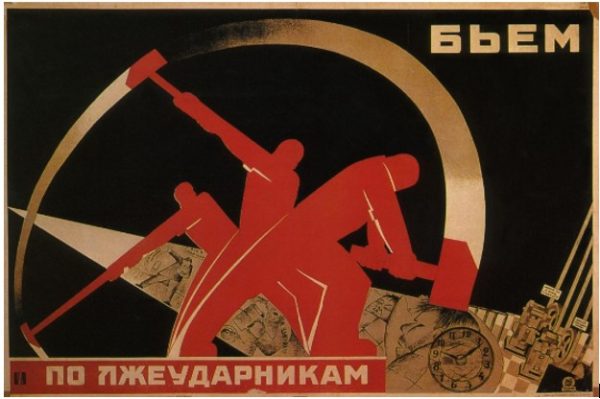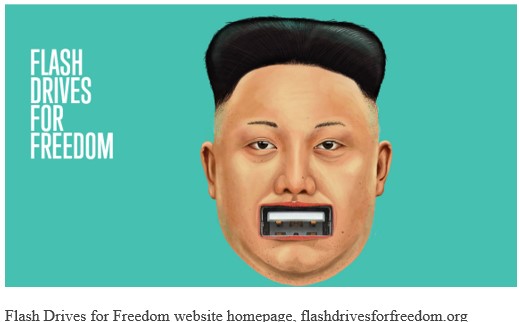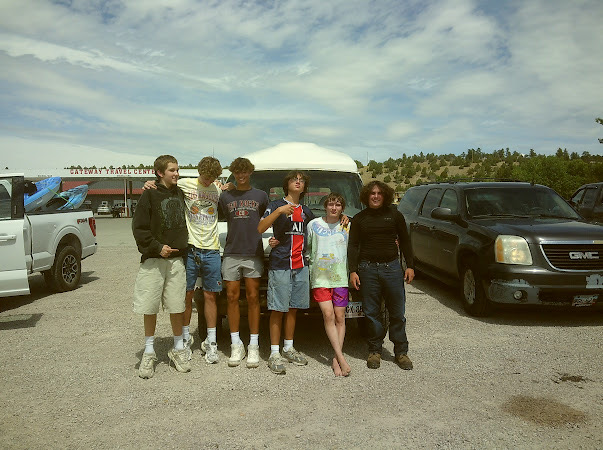“I am most grateful for two things: that I was born in North Korea, and that I escaped from North Korea” (Park, Yeonmi, “In Order to Live: A North Korean Girl’s Journey to Freedom,” pg. 12).
From Stalin’s Soviet Union to the modern-day rule of the Kim family in North Korea, totalitarianism has been a threat against democracy, with its ever-growing menace looming over the United States.
The heart of the American democracy is the principal freedom, and in contrast stands the all-oppressive government of Totalitarianism. This growing threat to the United States’ security has become more evident primarily in North Korea, whose powerful regime continues to oppose democratic values.
The Kim family has stood as the power of North Korea, beginning with Kim Il-Sung in 1948, and now to the current leader, Kim Jong-Un. This has been a line of succession through three generations, starting with Kim Il-Sung, who, after WW2, was installed as the head of the state by the Soviet Union. Kim Il-Sung was later succeeded as the president by his son Kim Jong-Il, in 1994 (and thereafter, Kim Il-Sung was declared as the eternal president). Kim Jong-Il led North Korea until his passing in 2011, after which his son Kim Jong-un assumed presidency, a position which he holds to this day.
The Soviet Union played a key role in the beginning of the Kim family reign. During the Era of the Cold War, North Korea and the Soviet Union aided each other in numerous ways. The Soviet Union provided aid to North Korea in several areas, and North Korea provided payment. Such assistance came in the form of the deployment of Soviet pilots and weapons materials to North Korea in the Korean War, and supplies for the people of North Korea during that time of war.
The leader of the Soviet Union at the time was none other than Joseph Stalin. Stalin not only aided North Korea to receive payment for weapons materials, but there was also the matter of shared ideology. Both countries had their streaks of communist and totalitarian views, along with a similar goal of increased influence over Asia.
Both dynasties of the Kim family and the Soviet Union present the same key elements within totalitarian governments. The head of this is the one-party system in which a single political party governs the country, and this includes the majority of aspects of society, such as media, economy, and government. One would observe oppression under these dynasties, oppression against political opposition, independent thought, and media that fail to align with state/country propaganda. Such things are met with severe punishment, threats against family members, imprisonment in work camps, and public execution.

1931 Soviet Propaganda poster, “We smite the lazy workers,” “These Soviet propaganda posters once evoked heroism, pride and anxiety”, PBS.org
Although the Soviet Union (USSR) was stripped of power long ago, North Korea still remains under the Kim dynasty. The bond between Russia and North Korea has resurfaced as a result of current circumstances with Russia’s War on Ukraine, with ten to twelve thousand North Korean troops having been sent over to the Kursk Oblast region in support of Russia’s efforts.
It may be unclear why this holds any relevance in the United States and supposed threats to our democracy, but the threat is all too real.
Interview with Kate Blaire, May 8, 2025.
Kate Blaire, a friend, college student, and High school graduate, agreed to an interview with me on the relevance of this topic. Below, we discuss totalitarianism throughout history, life in North Korea, and the growing signs of totalitarianism within the United States.
Vivian – Q: What is the core issue that you would like to address in this interview?
Kate – A: I think that too many people are unaware of what is happening in North Korea, and because we are unaware, it might seem to the North Korean people that we don’t care about what’s happening to them.
Vivian – Q: Before conducting this interview, I sent you articles and documentaries that I used in my research. I would like your take on these websites. What are your personal thoughts and feelings on the situation in North Korea?
Kate – A: I struggle to think that people live under these conditions without the knowledge of other countries and without the help or aid of other countries, but because of what’s going on right now, everyone is focused on their own countries and issues. Totalitarianism is going unchallenged.
Vivian: What do you mean by everything that’s’ going on right now?
Kate: The political situation in the United States has been blown out of proportion… and the unrest over Ukraine and Russia have taken a lot of focus the last few years. Having studied the Iraq war and the Cold war that occurred before that, things of this nature are getting hidden or deemed not a priority. The United States especially, which is a world leader in the UN, is prioritizing itself first.
Vivian – Q: When or where have you seen totalitarianism in the United States?
Kate – A: During World War II, there were the concentration camps such as the Topaz camp in Utah. The Japanese citizens that were living on a coast were put in those camps, and they were told that this was for the protection of the American troops, information, and safety of American citizens. They thought that these citizens could be potential spies, but many of those people transported to those concentration camps had nothing to do with that. That is a totalitarian thing; they were not given rights or liberties, and these were citizens, not foreigners; they were American citizens.
Vivian: There were rights that we had set in place to protect citizens, and that’s a clear violation. In fact, I studied these camps in the U.S. in my previous school year in history, and I find it disturbing how similar that event was to the camps in the Holocaust.
Vivian – Q: How does the totalitarian state of North Korea impact our community/country? How is this a threat to our democracy?
Kate – A: A threat to a democracy anywhere is a threat to democracy everywhere. That issue can spread to other countries and can affect those who wish to come to work or live in America, and it can affect those who wish to travel to other countries. I think that’s why the United States joined the United Nations, because they realized how fast this threat can spread through propaganda, and through the takeover of other countries.
Vivian: Exactly, often a totalitarian government doesn’t stay in one place, it spreads through other countries, and no country is immune. Much like in the Nazi regime in Germany, and the use of propaganda and scapegoats to unify the country against one group.
Vivian – Q: What causes or leads to the development of a totalitarian government?
Kate – A: Like you said already, they choose a group, cause, or threat and unify a force against them.
Vivian: That was prevalent in Nazi Germany, but North Korea takes a different and more 1984 approach to totalitarianism. If you read the article on religious freedom, it talked about supposed religious freedom in North Korea, which is more of a front to the actual truth. Christians are targeted with heavy governmental prejudice.
Kate: Yes, they threatened whole families if they associated openly with their religions. Missionary work is just not allowed, but this is also in other places such as Iran, Egypt, and China. A lot of places definitely exhibit totalitarian or communist curbs on religious freedom.
Vivian: This definitely has a lot to do with the oppression of power, like the power of religious leaders and free thought. A totalitarian government is all about complete control, and that includes beliefs.
Vivian – Q: What might cause or lead to the development of a totalitarian government?
Kate – A: It definitely is tied to the economy in certain cases. Leaders are often chosen by the needs of the economy and how it benefits the individual. Like in Nazi Germany, this was seen when supporters got free things, higher ranks, and free radios which had only the Nazi propaganda channel. This seemed like a good thing for many people, but an extreme right can also be totalitarianism. By doing this, they left out other parts of the population and created a minority which ended up as the scapegoat. This was all done with an intention to influence.
Vivian: Talking about economics again, I do remember reading about North Korea’s alliance with the Soviet Union. North Korea was dependent on rations and help from the Soviet Union, and when it collapsed, North Korea plunged into economic devastation. The Kim family was already ruling over North Korea, and they still managed to stay in power.
Kate: Well, people don’t always like the president, but they will vote with their wallet. In this case, there really wasn’t a vote; it was decided and absolute, unlike a democracy where we get a choice.
Vivian – Q: What examples of totalitarianism have you seen in the United States today?
Kate – A: There has been a lot of aggression and fear-mongering against illegal immigrants, and it has become a banner for people who are more totalitarian to fall under and support. Not every person that’s an illegal immigrant is going to be a criminal, they’re not all bad people.
Vivian: Right, just like in Nazi Germany, the Jewish people were not bad people, a bad person can be in any group, and one bad person within a group doesn’t determine its entire character. By doing this, one could say that we’re following the patterns of history repeating itself, which is cliché but accurate.
Kate: Exactly, any American citizen can be a criminal. Anyone in general could be a criminal, it doesn’t matter where they’re from. This issue over immigrants is stirring up a lot of fear, which totalitarian governments do against one nation, creed, or nationality, which is dangerous ground to tread. This propaganda about illegal immigrants is subtle and proportionate in balance as to what’s being reported.
Vivian – Q: What is the most important thing that our readers should know about this? What should the readers know about the issues presented by totalitarianism in North Korea, and how this could affect us, like it has affected the world throughout history?
Kate – A: As you’ve said before, history has an unfortunate pattern of repeating itself. We have a tendency as a country and as a people to get too comfortable and too complacent, and we fail to pay attention to the rights we get as a people and human rights in other countries. We can be silent for so long, but there are ways that laws can be changed through official systems. There has been so much that has been done to give people equal rights, like with the civil rights movement, especially under Martin Luther King. There are peaceful protests and ways to promote equality that will last longer. We need people to say something if they see something wrong; instead of sitting idly by, we should be fighting over these things using peaceful resolutions.
Vivian – Q: Is there anything else that you would like to add? Any personal insights or observations?
Kate – A: It’s important to pay attention to these things, and to not stir up problems if there is not a problem. Promote change if there is a need for change, seek help of officials and don’t let this problem sit. I would also like to say that I think that it’s wonderful that this is a thing that High School students are studying. Even if this is a difficult thing to research and go out and interview people in your community, this is an important thing for students to be aware of, right now, young people are focused on starting their lives and being financially independent, but it’s also incredibly important for them to be aware of economics and national issues. It will affect them in the long run and their futures.
Vivian: Thank you, that answer was spot on for why I chose this topic. The goal here is to keep the community informed and encourage others to notice these signs and promote a change whenever possible.

A Survivors Story – Yeonmi Park
One of the most famous North Korean defectors, Yeonmi Park, is known for her harrowing journey from North Korea to America.
Born October 4, 1993, Yeonmi Park lived with her family in Hyesan, North Korea. Born in the nineties, Park was part of the Black-Market generation, or the “Jangmadang” generation. This generation fell under that category because of their use of smuggled goods from the outside world, such as foreign movies, which are forbidden. Park recollects having watched movies such as Snow White, Cinderella, and Titanic via the black-market smuggling. These movies were unlike any North Korean media,a which pushed propaganda and praise towards the Kim regime.
Propaganda not only took place in movies and shows, but also in the education and daily lives of North Korean citizens. Park recollects school lessons of her past, each one containing propaganda. Whether it was praising North Korea’s leader. Kim Jong-un, or painting America and Japan as the enemy, propaganda has always held a strong presence. This didn’t end within the walls of schools, but also within the walls of homes. With power outages due to poor economic situations, citizens were encouraged to blame it on the Americans and Japanese, often shouting out obscenities towards the “Americans” and “Japanese” when the lights would go out. Another thing that is considered normal in the homes of North Korean citizens is the portrait of Kim Jong-Il (The father of Kim Jong-un), which is left on display. Kim Jong-Il was regarded as a deity, and Park refers to this portrait in interviews, saying that she thought that the previous leader, Kim Jong-Il was all-knowing and could read her thoughts. This kind of fear was what Yeonmi Park lived with throughout her childhood, and this is the life she left behind in 2007.
At the age of 13, Park and her mother fled North Korea shortly after Park’s elder sister in 2007. The journey would be perilous, from the crossing of the frozen Yalu River to exploitation at the hands of brokers and traffickers. One such broker attempted to force himself on Park, but her mother stepped in and offered herself instead. Park could do nothing but watch as her mother was then assaulted and violated before her eyes. Eventually, Park’s mother ended up being sold off and forced to marry a Chinese farmer. To get her mother back, Park made an agreement with a Chinese trafficker named Hongwei and consented to be his mistress so that he would get her mother back. After reuniting with her mother, it wasn’t long before they would make their escape to South Korea.
In 2009, the park managed to reach out to Christian missionaries who were helping defectors escape to South Korea. Once plans were in place, Park and her mother joined a small group of refugees crossing the Gobi Desert to seek refuge in Mongolia before reaching South Korea. It was the coldest time of the year, in the dead of winter, and Park marched on. Each refugee had a knife hidden in their sleeves to end their own lives, and if they were captured or if soldiers in Mongolia tried to send them back to China, they would end their suffering before it began. Park recalls that she was no longer afraid of dying at this point; she was more afraid of being forgotten and unknown, regarded as simply yet another dead refugee with no hope or life to live.
Despite all odds, Yeonmi Park and her mother made it to South Korea, where they found a safe refuge. As of 2014, Park has lived in America in Chicago. Though she is far from North Korea, Park still works to influence the lives of those suffering under the totalitarian government of her home country. Park serves on the board of the Human Rights Foundation and is an advocate for the “Flash Drives for Freedom” Program. This program focuses on smuggling USBs containing foreign media such as Hollywood movies, K-Pop, music, and South Korean Soap Operas into North Korea to be distributed throughout the country.

Along with her human rights work and giving speeches at summits (Park often retells her story of escaping North Korea), she is the author of “While Time Remains” and “In Order to Live,” both of which contain Park’s story of life in North Korea and her escape from her homeland. Yeonmi Park still resides in America, and she continues to work daily to make a change in the hope that one day, we will see a free North Korea.
Ignorance isn’t Bliss
Totalitarian governments through past and present history present too much of a threat to ignore. If action is not taken, the idea of democracy will all but dissolve and be lost to the tyrannic reign of the world’s most controlling government. How else can this be done with a general public that is unaware of the severity and extreme side of living under such a government?
History is stuck on a repetitive cycle, one which will continue without the interference of united communities. Totalitarianism is a piece in this cycle, and many are not aware to which it asserts its power. Those who are aware are often too afraid to stand up to this threat because of the risks that come with resisting such absolute control. This is the fear that North Korean citizens live under on a daily basis, when so much as voicing an opinion differing from set rules and policies has been punished by torture, threats, public shaming, and public humiliation.
Coincidentally, this is strikingly similar to the Nazi regime in Germany. The Jewish citizens of Germany were wrongfully mistreated and would be punished for the slightest deviation from set rules and laws regarding their freedoms. These rules and laws were extreme and often made life impossible to live. Once the events pertaining to the Holocaust were revealed to the world, action was taken, and those condemned to death found themselves liberated.
However, though the world may know of how life is in North Korea, action is not being taken. There are many reasons why extreme solutions cannot be acted on yet, mainly due to the fact that North Korea’s leader, Kim Jong-Un, happens to own a plethora of missiles and nuclear weapons which cover an extensive range. Despite this, efforts must still go forward to keep people aware of what is occurring behind the borders of North Korea.
Foreign events and countries will inevitably have an effect on all future generations, and if action is not taken, this effect will present a threat to the safety and security of nations worldwide. To prevent the spread of totalitarianism, the goal is to inform society of this threat and what it means to live under such a government. The democracy of the United States is not historically above totalitarian ways, but this doesn’t have to be the future of its citizens. There is still hope, and there is always time to make the right decisions; all it takes is a step forward, and this world will change.




















